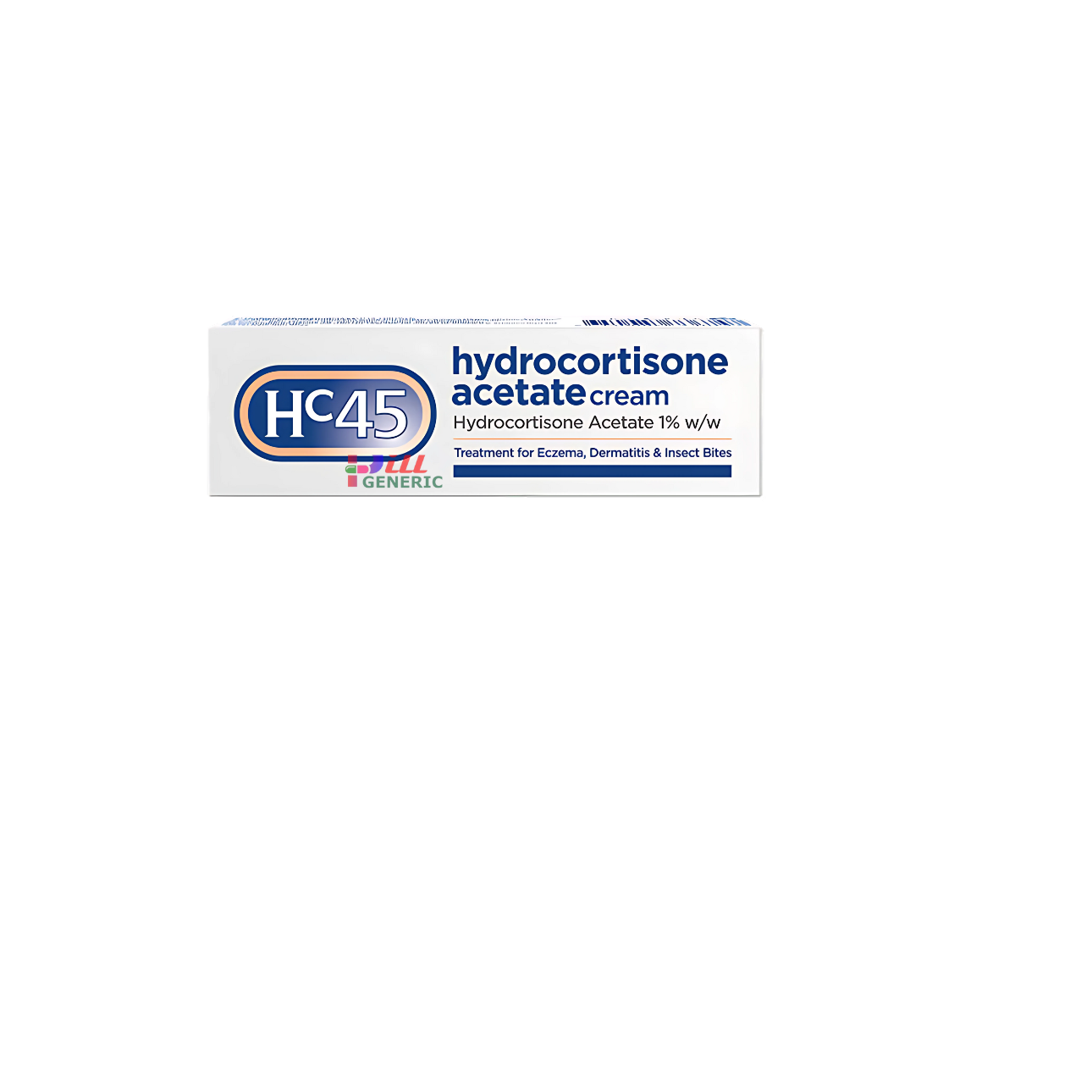Hydrocortisone acetate cream is a topical medication containing hydrocortisone acetate, a corticosteroid that helps reduce inflammation, itching, and redness. It is commonly used to treat various skin conditions caused by allergies, irritation, or immune reactions. Examples include:
- Eczema
- Psoriasis
- Dermatitis
- Insect bites
- Rashes
- Minor skin irritations
Key Features:
- Anti-inflammatory: Reduces swelling and redness.
- Anti-itch: Provides relief from itching associated with skin irritations.
- Mild potency: Hydrocortisone acetate cream is one of the least potent corticosteroids, making it suitable for sensitive areas (e.g., face, genitals) and for children, under medical guidance.
How to Use:
- Clean and dry the affected area.
- Apply a thin layer of the cream to the skin.
- Gently rub it in until absorbed.
- Use as directed, typically 1-4 times daily, depending on the condition.
Precautions:
- Avoid prolonged use, especially on the face, as it may cause skin thinning.
- Avoid applying on damaged or infected skin unless advised by a medical professional.
- Consult a healthcare provider before use in children or during pregnancy/breastfeeding.
- Skin Sensitivity: Avoid application to broken or infected skin unless recommended.
- Children and Elderly: Use cautiously, as their skin may absorb the medication more readily.
- Face, Groin, and Underarms: Avoid prolonged use on these sensitive areas.
- Pregnancy and Breastfeeding: Consult your doctor before use.
- Avoid Long-Term Use: Chronic use can lead to thinning of the skin, stretch marks, or systemic absorption.
Possible Side Effects:
Local Side Effects (Common):
- Mild burning, stinging, or redness.
- Dryness or peeling at the site of application.
Systemic Side Effects (Rare, with prolonged use):
- Hormonal imbalances, such as Cushing’s syndrome (symptoms include weight gain, facial swelling).
- Suppression of adrenal gland function.
- Thinning of the skin (atrophy).
- Hyperpigmentation or hypopigmentation.
8. Drug Interactions
Hydrocortisone acetate is not commonly associated with systemic drug interactions. However, systemic absorption in rare cases could theoretically interact with medications like:
-
- Immunosuppressants.
- Other corticosteroids.














Reviews
There are no reviews yet.